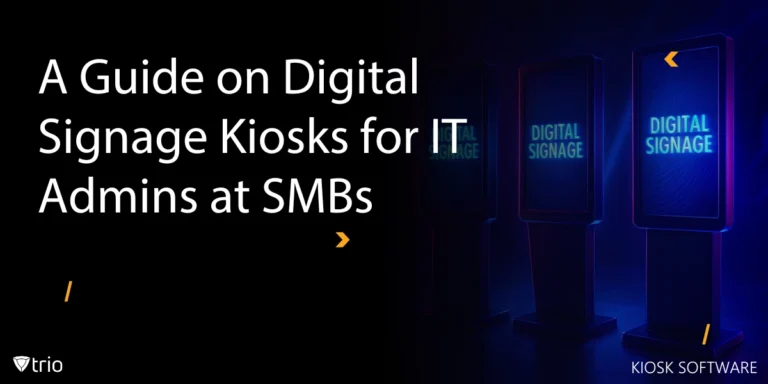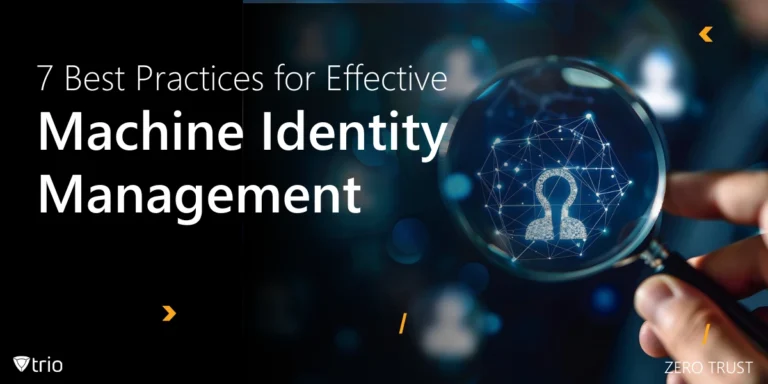A well-defined Virtual Private Network (VPN) policy is essential to protect your data and maintain the integrity of your organization’s IT infrastructure. According to ExplodingTopics, “93% of organizations currently use a VPN.” Your organization probably shouldn’t be any different. This blog post will guide you through the process of creating a comprehensive VPN policy template that can be tailored to fit the specific needs of any organization.
Why a VPN Policy is Essential
A VPN policy is a set of guidelines that govern the use of VPNs within an organization. It ensures that all remote connections are secure, authorized, and compliant with relevant regulations. Here’s why having a VPN policy is crucial when setting up a VPN for a business:
- Security: Protects sensitive data from unauthorized access and cyber threats.
- Compliance: Ensures adherence to legal and regulatory requirements.
- Access Control: Manages who can access the network and under what conditions.
- Responsibility: Defines user responsibilities to maintain network integrity.
Key Components of a VPN Policy Template
Some key components that every VPN policy template should include are:
-
Purpose
The purpose section outlines the main objectives of the VPN policy. It should clearly state the intent to provide secure remote access and protect the organization’s data.
-
Scope
This section defines who the policy applies to, such as employees, contractors, consultants, and any third parties. It ensures everyone accessing the network via VPN is covered by the policy.
-
Access Controls
Access controls are critical to managing who can use the VPN and under what conditions. This includes:
- Authorization: Defining the approval process for VPN access.
- User Accounts: Ensuring each user has a unique account and credentials.
- Authentication: Implementing multi-factor authentication (MFA) and strong password policies.
-
Security Measures
Security measures are the backbone of a VPN policy, ensuring that all connections are secure and data is protected. This includes:
- Encryption: Using strong encryption protocols like SSL/TLS or IPsec.
- Endpoint Security: Requiring up-to-date antivirus software and firewalls on all devices.
- Monitoring and Logging: Keeping logs of VPN usage to detect and respond to unauthorized access.
For example, a remote access to a VPN might be blocked by some IT admins so that employees can only use the VPN in the office during working hours.
-
Compliance
Compliance ensures that VPN usage adheres to all relevant legal and regulatory standards. Regular audits should be conducted to ensure compliance with laws such as GDPR or HIPAA.
-
User Responsibilities
Users must be aware of their responsibilities when using the VPN client software. This includes:
- Acceptable Use: VPNs should be used for business purposes only.
- Data Protection: Users must protect sensitive data and report any security incidents.
- Connection Management: Users should disconnect from the VPN when not in use.
-
Review and Updates
Regular reviews and updates to the VPN policy ensure it remains effective and relevant. Encourage feedback from users to continuously improve the policy.
Conclusion
Mobile Device Management (MDM) solutions, like Trio, can significantly enhance the security and manageability of your VPN infrastructure. MDM solutions provide centralized control over all devices accessing your network, making it easier to:
- Enforce Security Policies
- Monitor Device Compliance
- Manage device remotely
Creating a comprehensive VPN policy is essential for securing your organization’s network and data. By following the guidelines outlined above and leveraging MDM solutions like Trio’s free demo, you can establish a robust VPN policy that protects your organization from potential threats. Get started with this ready-made VPN policy template!
Get Ahead of the Curve
Every organization today needs a solution to automate time-consuming tasks and strengthen security.
Without the right tools, manual processes drain resources and leave gaps in protection. Trio MDM is designed to solve this problem, automating key tasks, boosting security, and ensuring compliance with ease.
Don't let inefficiencies hold you back. Learn how Trio MDM can revolutionize your IT operations or request a free trial today!





